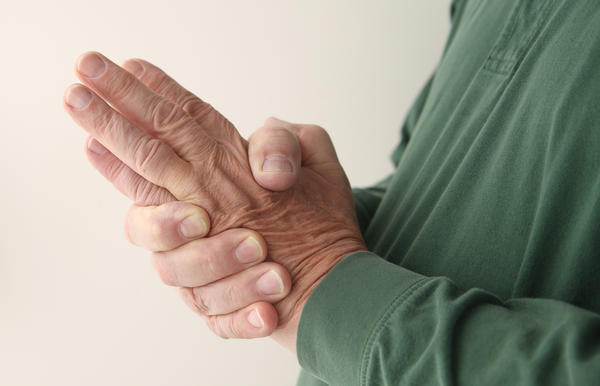 New Health Guide
New Health Guide
It is possible that you develop shakiness gradually or it can also develop suddenly. It is usually nothing serious, as your body reacts this way when you are angry or stressed. You may also experience it when you recover from an illness. If it is growing worse with time, you need to do something about shakiness or "tremor", as the experts call it.

It is natural to feel concerned when you develop tremors, but you need to know that shakiness is actually more common than most people might think. Here are some of the possible causes of shakiness:
Shakiness could very well be a side effect of certain medications. This is more common with medications that block dopamine, a brain chemical that helps move information to different parts of your brain. Your doctor prescribes these medications to help prevent mood shifts. Tell your doctor if you have recently started taking a medication that seems to be the reason behind your shakiness. Changing the medication usually resolves the issue.
Your nervous system will fail to function properly in the absence of enough vitamin B12. This in turn would result in shakiness in hands or feet. You can take this vitamin in supplement form or include more poultry, fish, meat, and milk products in your diet.
One common cause of shakiness is stress. It is hard to avoid stress these days. From job and financial worries to health concerns and relationship problems, everything can contribute to a buildup of stress in your system. Stress can worsen shakiness and can cause it if you do not already have the issue. Stress may lead to sleep deprivation, extreme hunger, and intense anger, which could contribute to physiologic tremor.
If you have just taking steps to treat your alcoholism, you may experience some withdrawal symptoms, including shakiness. This is usually a temporary symptom, but work with your doctor if it is becoming worse with time.
What causes shakiness? It could be that your blood sugar is very low, which happens when you have not eaten some carbs in a long time. In traumatic situations, it is possible for your blood sugar levels to crash suddenly, and this would make you go into shock. You may also start shaking in this situation. Have a banana or eat something similar to improve your blood sugar levels.
Do you find it difficult to start your day without caffeine? Do you need a caffeine shot to stay functional throughout the day? You are relying too much on caffeine, and as it is a stimulant, it can increase your energy to a level that you start shaking. Not everyone reacts this way to caffeine, but it can be the reason why you are feeling shaky all the time.
What causes shakiness? A possible reason could be multiple sclerosis, which affects your brain, immune system, spinal cord, and nerves. If you have MS, you are likely to experience a tremor in your foot or hand. You can have different types of tremors with this disease, but the most common type is the one you experience when are already moving.
Not doing anything to treat your stress would lead to panic attacks. You can also have a panic attack due to excess adrenaline. When you have a panic attack, you feel a crushing pain in your chest along with shortness of breath. You will panic, start to shake, and have racing thoughts. Most people with this disorder often experience an attack just as they are falling asleep at night. Breathing exercises may help keep things under control.
Your thyroid gland releases a hormone that helps regulate your metabolism. In case of an overactive thyroid, your metabolism will work faster than normal. It means your body will be burning fat and energy quickly, which in turn will lead to weight loss and tiredness. You may have tremors as well.
More than 10 million people are suffering from Parkinson's disease, and tremor or shakiness can be an early sign of it. While not every person with this disease will experience shakiness, it is usually present in most patients. You may experience it in a foot, hand, or even a single finger. It may affect only one side of your body and becomes worse when you relax your muscles. Moving can help stop the shaking; in fact, flexing your fingers a bit may help control the shakiness. Stress can make your condition worse and spread the tremor to other side of your body as well.
What causes shakiness? The causes vary, and depending on the underlying cause, you may require immediate attention to resolve the issue. Once you have identified the cause, you can try some solutions to see if they work. If it is due to excess caffeine, sugars, tobacco, or prescription drugs, you may consider limiting the intake to control your tremors.
If you think your diet has a role to play, change it. You may feel better by avoiding simple carbs. However, if you shake because your sugar levels drops suddenly, you may want to keep something sweet with you all the time to control your blood sugar. You also need to increase your intake of protein to avoid having another attack.
What it means is that you need to think hard about what have triggered an attack. It could be your diet, your sleeping routine, or your stressful life. Identify it and then take steps to manage things better.